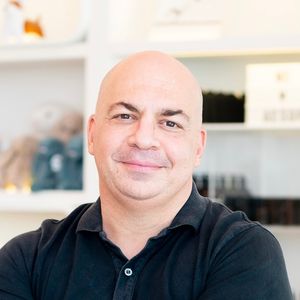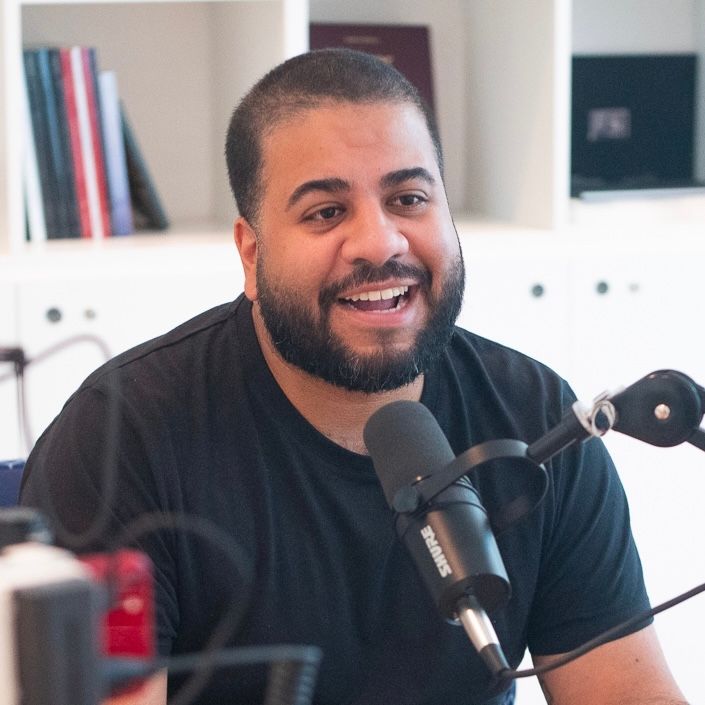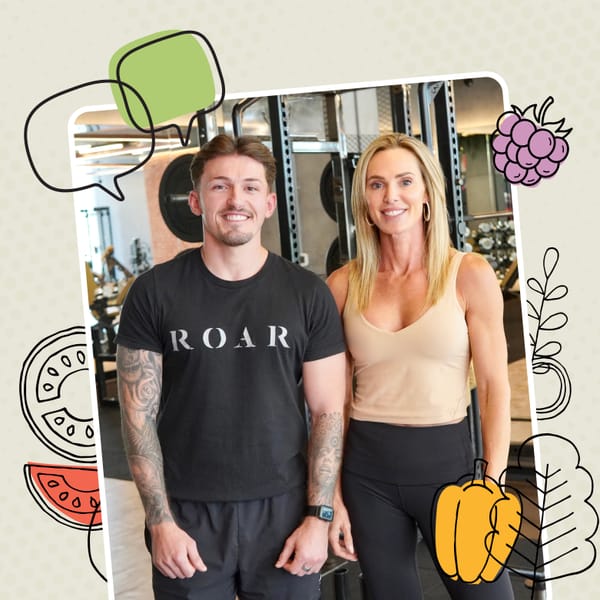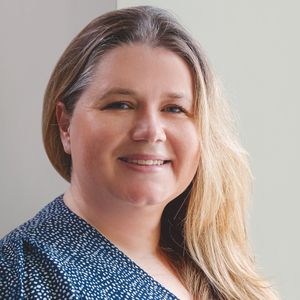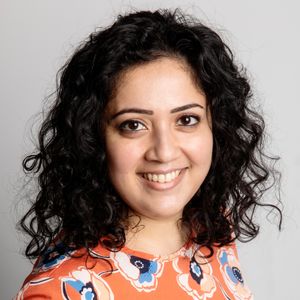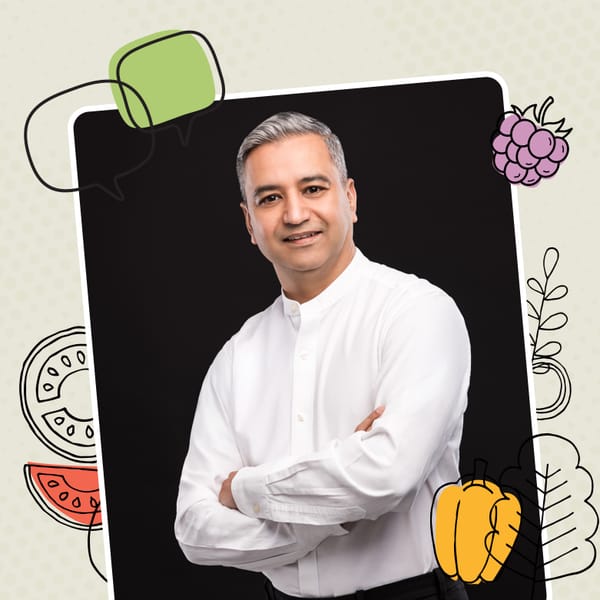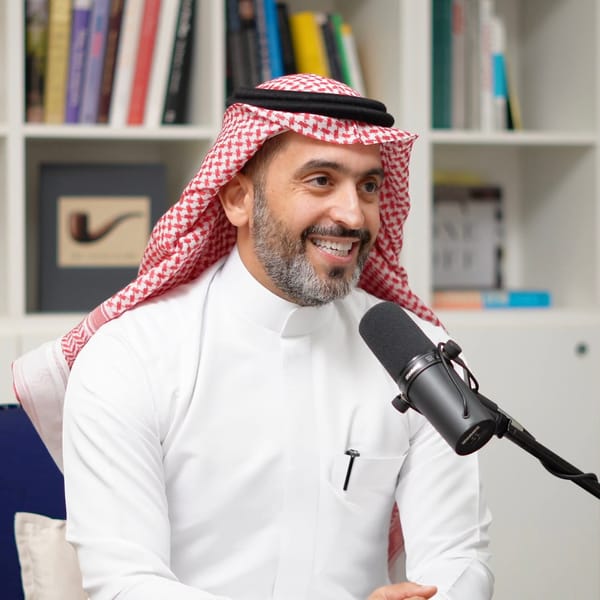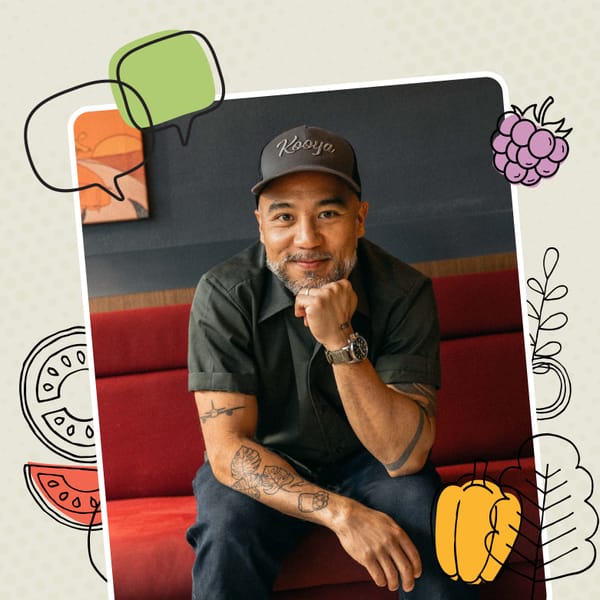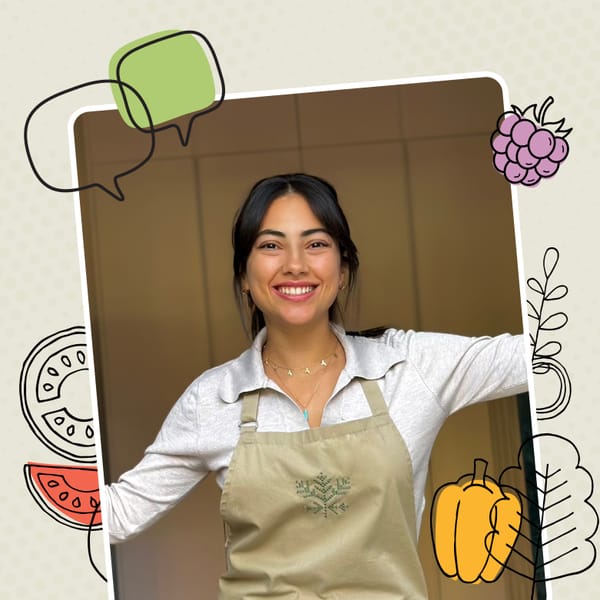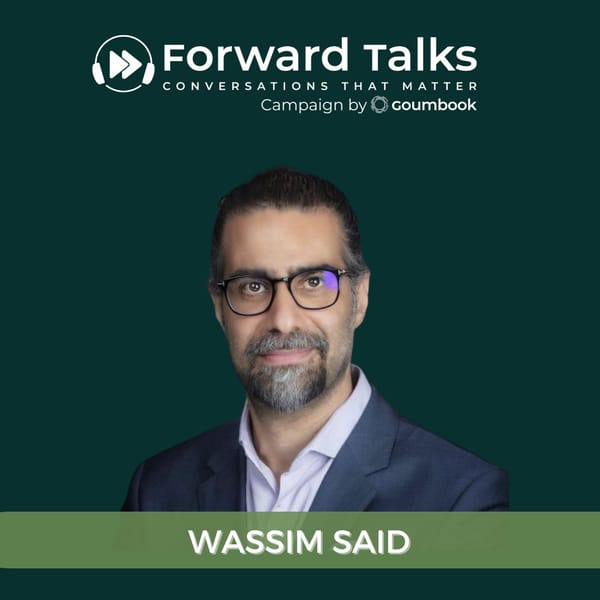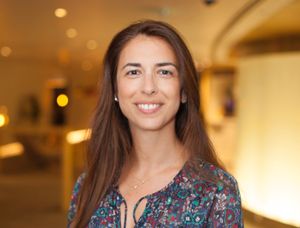Our guest is up-and-coming designer Meshary AlNassar. Hailing from Kuwait, Meshary’s journey into interior design started during childhood with American TV pop culture influences The Oprah Winfrey Show and Extreme Makeover: Home Edition. Hashem and Meshary discuss his “design education” surrounded by an all-female cohort and how he managed to navigate societal disapproval as a Khaleeji designer. Meshary shares how he balances aesthetics vs. technical know-how, maximalism vs. minimalism, clients’ expectations vs. personal input, and how his Kuwaiti dentist became an unlikely pivotal client. Hashem and Meshary also chat about all things Kuwait and why Kim K’s house went viral!
Links:
- Nouri restaurant’s Ivan Brehm on his passion for “crossroads” cooking and the best advice he ever received
- Mohamed Elshahed on tracing Cairo’s human experience, one building at a time
Transcript
Hashem Montasser
[00:00 - 00:12] We were meeting at 12 and you said I came at 10 because I wanted to have my breakfast. Decompress. Immediately in my mind, I was like, which is exactly opposite of me, he has a sense of humor. He wants to sit and enjoy it.
Meshary AlNassar
[00:12 - 00:30] I hustle and I run around. But when it comes to me expressing and talking, I love doing this with my client in the first meeting, the first briefing. We sit down and I dig deep into like, where do you travel? Where do you like to go? What kind of music? I like to know them. Therefore, it feeds into my creative process.
Hashem Montasser
[00:33 - 00:57] Welcome to the Lighthouse Conversations, a podcast featuring entrepreneurs and tastemakers from the world of arts, culture, tech, and food. I'm your host, Hesham Mottasir. And on the show today, I'm joined by Kuwaiti designer, Mishary Masar. Mishary started his design studio in Kuwait in 2018
[00:57 - 01:17] while waiting to start his master's and hasn't looked back since. I'm almost intrigued when I learn about new designers and I try to get a sense of their aesthetic. I have to say, I only heard about Mishary quite recently. I went to Instagram, of course, to do some research and everywhere else. And I found his aesthetic intriguing.
[01:17 - 01:38] He was somewhat minimalist, but has also sort of some maximalist pieces interspersed. We'll talk about how he continues to develop and challenge his own style, why he made the decision to settle in Dubai, and of course, all things Kuwait. Mishary, welcome.
[01:38 - 01:51] Thank you. We're so happy to have you here. You have such an interesting story. Let's start just first with what you do and who you are. You've been in Dubai and the UAE now for the last seven years. Is that right? A total of seven years.
Meshary AlNassar
[01:51 - 01:54] So you came here to study. I came here to study in 2011.
Hashem Montasser
[01:55 - 02:13] Okay. And you're Kuwaiti, obviously. You grew up in Kuwait. What prompted a move to study here? Because at the time, more common that you'd go to the States, you'd go to the UK. Some did. Farah studied in Sharjah. So it does exist. It's not that it doesn't, but it wasn't very common. Walk us through the rationale here.
Meshary AlNassar
[02:13 - 02:35] The story was quite interesting. I was actually studying at the American University in Kuwait. I was doing finance. Okay. And I did like a year and a half to two years. I just didn't feel like I wanted to be there. I wanted to be abroad. I wanted to see more. So what I did was basically I spoke to my parents about moving to the States. And they approved. Then I started applying and doing all that stuff in the entire process. But they said I had to start over.
[02:35 - 02:55] You can't just transfer your credits. And I didn't want to waste my time. And then the more the discussion opened up, my parents were like, why go so far away? Stay within the region? So I'm like, fine. AUB is fantastic. That period of time, something happened politically in Beirut that my parents said, okay. Not just that period of time. I'm pretty much throughout.
[02:57 - 03:17] Unfortunately. But it was my dream. And it still is. AUB is still a university that I respect. So I ended up researching. And I found AUS in Sharjah. And I flew out to apply to Sharjah. And they rejected me on the spot. Wow. They were like, we don't take AUK students. We don't take you guys. So on the way back, I saw AUD.
[03:17 - 03:26] And I was like, why not go apply? I applied and I got accepted on the spot. And I called my dad. He was like, you're not going to Dubai. It's like the Vegas of the GCC. You're not going to go live there.
Hashem Montasser
[03:26 - 03:34] Did you have any connection to Dubai at the time? Nothing. Did you live here or spend any time here? Never. You came to visit with your family? It was just tourism every now and then.
Meshary AlNassar
[03:35 - 03:54] And I loved the campus. I loved everything. And I started and I did finance. Because my parents did not approve of me doing interior design. So I did finance. And then I switched to interior design without letting them know. Oh, bravo. And I spent a total of five years. If my son does this, I'll kill him. I'm just kidding. Oh, trust me. My dad has his opinions about it. But now he's the proudest. Now he's the proudest. No, no, I keep missing it.
Hashem Montasser
[03:54 - 03:59] It's all the interior design. It's like whatever he does without letting me know. That was my biggest secret. That's ballsy.
Meshary AlNassar
[03:59 - 04:06] Because I loved interior design. I grew up just loving everything design. Everything that has to do with impacting the day-to-day life.
Hashem Montasser
[04:06 - 04:12] Was it prevalent in your life? Did your parents have an interest in design? Or did you hang? I mean, what brought that love?
Meshary AlNassar
[04:12 - 04:23] I mentioned this a few times, and I'll mention it briefly again. I grew up watching a lot of TV. And that's where I learned most of pop culture, American accent, everything. And I was a huge fan of—
Hashem Montasser
[04:23 - 04:26] But Dallas didn't have particularly good design. I mean, what did you grow up watching?
Meshary AlNassar
[04:26 - 04:46] I grew up watching Oprah Winfrey Show, which had this guy named Nate Berkus. And he did makeovers. And it was like very kind of subtle makeovers for your laundry room or your bathroom. But I just saw the impact that had on these people and their homes. And then I discovered a show called Extreme Makeover Home Edition.
Hashem Montasser
[04:47 - 04:47] Yes, I know it.
Meshary AlNassar
[04:47 - 04:52] There was a guy named Ty Pennington. You know, the move that bus. I loved that show so much.
[04:53 - 05:13] There's a bus that blocks the house. And then they move the bus, and you see the transformation. I loved that contrast of before and after. And I never knew what interior designer meant. Until they put the title of Ty Pennington Interior Designer. And I was like, okay, I want to be that. But everyone said that's not a man's job. It's not a man's job. Oh, it's not a man's job.
[05:13 - 05:31] Every person within my culture and my circle said that's not a man's job. Men don't want to be designers. Are you going to fluff pillows for a living? Why would you do design? It doesn't make sense. Do something that brings in the money, and you can support yourself. And finance, banking, architecture, anything but not design.
Hashem Montasser
[05:32 - 05:37] And how many were you studying interior design? It must be a small number. A small number? I was the only guy.
Meshary AlNassar
[05:38 - 05:46] Only guy. I was the only guy. So imagine a Khaliji Arab man. Yeah. I'm picturing it as we speak. I felt very comfortable. And all these women judging.
Hashem Montasser
[05:47 - 05:49] Or not judging. Maybe they just liked that they had a man actually in the room.
Meshary AlNassar
[05:50 - 06:15] See, questionable. Let's get into that. I think it was more of like, you're so lazy, you don't want to go do the hard stuff. So you pick design because it's easy for you to graduate and get a degree. But they're in it. What makes them think it's easy? Because to them, interior design is under the umbrella of design. So they can branch out to fashion and so on. For me, I was always judged as like, you're a guy and you chose interior design because you don't want to do the hard stuff.
[06:15 - 06:26] You just want an easy degree. So I had to prove myself every semester. Over and over and over to my professors, to the faculty, to students. But honestly, it was the best experience ever.
Hashem Montasser
[06:27 - 06:48] So do you think – I'm jumping here a bit – but do you think that explains why we have so few Arab designers of any source? Especially male designers. I mean, we have many architects. But you don't see many Arab men in product design, interior design, graphic design. Honestly, maybe Lebanese a little bit because they have a very strong school in AOB.
[06:48 - 06:54] 100%. But not outside. Do you think it has to do with this concept that it's not manly enough, it's not for men? 100%.
Meshary AlNassar
[06:54 - 07:05] It does. There's a lot of male designers in the region, specifically Lebanon and Egypt. Fashion designers. Fashion, interior architecture. All under the umbrella of design. But they never started off studying it.
Hashem Montasser
[07:06 - 07:09] Everyone started off after completing. As an architect, and he does interior design. Yeah, that I'm familiar with.
Meshary AlNassar
[07:09 - 07:28] That's very familiar. However, all of the current designers did not actually choose, with the support of their families, to seek a degree in design. Because at that age, your family wants to be a part of your decision-making process. They don't want you to be a designer. So after you're done with all of your family's pressures, and then you start becoming a designer. That's what everyone is doing.
Hashem Montasser
[07:29 - 07:52] There's also probably something else, right? A lot of people – it's a bit like food. People have very strong views when it comes to interior design. In my view, there's no question there's right or wrong. Yes, of course, there's some subjectivity, but there's good design and bad design. Yet, what you see all the time is people like, no, I like it that way.
[07:52 - 08:03] It's great. No, it's not. It's really not great at all. But I want to understand from you, because you're coming up against people that may have a good eye, but certainly haven't studied this.
Meshary AlNassar
[08:03 - 08:23] True. I think that's the biggest challenge. Because in design, there's two parts. There's the aesthetic part, and then there's the functional part. If you understand function and measurements and construction and renovation and so on, you have that technical side of things. The aesthetic side, you're either blessed with it or you're not. And I know a lot of students from my batch that are blessed with technicalities, but zero taste. And vice versa.
[08:23 - 08:39] So it's all about that good balance. So when I come in with a degree and experience, and I've studied this for a few years, against someone who's been in the market for 15 years, who does not have a degree but has an impeccable eye, at the beginning, it was frustrating. Now, it's no longer frustrating.
Hashem Montasser
[08:40 - 08:48] That's very interesting, because I guess you think, oh, this person hasn't really studied it, right? He doesn't really understand the science behind it. True. But it's okay. You think it's okay.
Meshary AlNassar
[08:49 - 09:12] I think now, at this time in my career, I think it's not okay. I think it's amazing, because you learn so much from them. I know a lot of designers in Kuwait and in the GCC who did not study it, and they've been in the market for 10, 15, even 20 years. I learned so much from them. They have an eye, and they've been through a lot. They've experienced so much in the industry. I can't just kind of dismiss their entire experience, because they never studied it.
[09:12 - 09:16] Yeah. But at the same time, of course, getting a degree and education helps you.
Hashem Montasser
[09:16 - 09:22] No question. I came at it from another way. I was what your parents wanted you to do, which I became a banker.
[09:22 - 09:46] And then, obviously, in my current job, the interior design element is quite important, because we open restaurants and lifestyle spaces and so on. And I love it. I enjoy it. I would like to think that I have a decent eye of looking at things. Yeah. But I have a lot of respect when people come into it at me, and we collaborate, and they have a bit more of a, let's call it scientific underpinning,
[09:47 - 10:00] because it sort of strengthens my eye, so to speak. Yeah. But ultimately, I still rely on my own kind of sense of what I like and what I don't. And if you're talking with someone that studied this, I think the interplay is very healthy.
Meshary AlNassar
[10:01 - 10:23] I think if you're willing to kind of listen to the feedback and take it in a grain of salt, it's such an interesting conversation. It is. It is very enriching. Yes. Meanwhile, some people get easily offended if you give your opinion on there, because I feel like when interior design or designing spaces in general, it's like putting a flower bouquet together. There's no right or wrong. You pick and choose whatever you like and what you want to see on a daily basis, and you put it together, and that's individually yours.
Hashem Montasser
[10:24 - 10:45] But it's also, there needs to be chemistry. I can tell you, I work now with four or five architects slash interior designers in our various restaurants. Yeah. I know almost right away. Yeah. I mean, you know, whether this will work out or not, both on personality and on their sense of aesthetics. Yeah. And when it does work, which has been every one of them, I mean, the only reason we've moved to different ones is you want to get a fresh perspective.
[10:46 - 10:57] Yeah. It's really exhilarating. It's really a lot of fun. It brings a lot of perspective, and all the good ones I have found are very open to a dialogue. It's not like my way or the highway.
Meshary AlNassar
[10:57 - 11:19] It's healthier. It's healthier for the designer and the architect not to be defensive, and it's healthier for the client to be opening up for a discussion. I always say most of my projects are a collaboration between me and the client. Yeah. As soon as the client checks out, I stop giving you the extra mile. Because we need to work on this together. This is your home. This is your space. Once you say, okay, listen, you do whatever you want, that's when I'm no longer interested in the project.
[11:19 - 11:20] So who am I designing for?
Hashem Montasser
[11:23 - 11:48] So just checking your social media accounts and so on, you have a very interesting, obviously kind of somewhat minimalist aesthetic in terms of your style. I would say sort of, you know, very clean. To an extent, yes. Yeah. Very clean in many ways. Yeah, to an extent. It's hard to define. Yeah, it is hard to define because I saw a few pieces and I was like, oh, interesting. But the bones are clean, and then I think you build up from there, which I find quite interesting.
[11:49 - 12:12] I feel that's sort of my comfort zone. So I'm able to build on a clean canvas, if you will. Yeah. But if it's very busy, it's very hard to work from there. If somebody comes to you, and there's many definitely in the Gulf but also elsewhere, especially in residential projects, with a very maximalist approach, what do you do?
[12:12 - 12:16] So if I'm a Ferrari person and I need the modhab and the this and the…
Meshary AlNassar
[12:16 - 12:19] Yeah, the Versace. Yeah. I get it. I completely get it.
Hashem Montasser
[12:19 - 12:32] Yeah, I was about to get there. If I'm the Versace hotel guy, what do you do? And I bring you and I ask you, Bashari, I need you to work on my house. It's very Versace. Of course. Can you work with this? See, you have to be… I would rather kill myself.
Meshary AlNassar
[12:32 - 12:52] I used to say that. I used to say I'll never take something that's gilded Versace madness, because in the GCC specifically, specifically from Kuwait, a lot of it with the wrong proportions. Yeah, yeah. They want a massive staircase that cascades… The Kuwaiti take it to a new level, no question about it. The Kuwaiti, like Khaliji TV shows, when you see the big cascading…
Hashem Montasser
[12:52 - 12:56] The hair, frankly, I have to admit, the biggest volumes I've ever seen are in Kuwait. It's insane. Fantastic hair.
Meshary AlNassar
[12:56 - 13:16] Yeah, but then the staircase that they want occupies 75% of the ground floor. So where are you trying to shake? Because they want the high impact Versace. You know what I mean? They like the drama, yeah. They like the drama, which I respect, but I think things need to be done the right way or don't do it. What I find kind of challenging is setting the expectations right for the clients.
[13:16 - 13:37] If the client comes to you with a very small budget and a very small plot and says, I want the four seasons, my job is to say, not possible. We can do something nicer. We can do, let's say, the addition hotel kind of aesthetic. We can approach it in a different way where it's tailored for that current circumstances, but not, let's copy-paste.
[13:37 - 14:01] But if someone comes to ask you a question, if someone comes to me with that aesthetic, says, would you do it? At the beginning of my career, I wouldn't do it. Now, I would love a good challenge. That's good. A good challenge because I want to learn how to mix my vision with what they want. And then the outcome could be something different. I think it's fun to experiment. I would never definitely do Fully Gilded with purple tassels, per se, but I think it's interesting to explore.
Hashem Montasser
[14:01 - 14:13] What's the multi-coloured Italian brand? And in Kuwait, you have a hotel. Missoni. Missoni, yeah. When they were like, we're opening Kuwait, I'm like, it so makes sense, right? Yeah, yeah, yeah. Missoni and Kuwait are like a match made in heaven.
Meshary AlNassar
[14:13 - 14:34] Yeah, yeah. I think because Kuwait is a mix of different aesthetics. I have clients in Kuwait who have some of the most outstanding homes I've ever seen in my life. Some impeccable taste. And then some that… And some very loud taste. Not just loud. There are things that I want to create a show around. People need to see it. I've seen things. I've seen spaces that I'm like, how did you create this?
Hashem Montasser
[14:34 - 14:37] Where you almost celebrate the ridiculous. Yeah, yeah.
Meshary AlNassar
[14:37 - 14:45] It's so ridiculous that I'm like, who made this for you? Because in my mind, it's not the outcome. It's the process. Which carpenter came and agreed to say, yes, I want to do this for you?
Hashem Montasser
[14:45 - 15:06] But you know what's such an interesting thing? When we first bought our house here in Dubai, we bought a house that was already finished, and then we completely got it in and restarted. But there were a couple of things. So we had this massive chandelier, crystal chandelier, dangling from the ceiling. And we're like, oh my God, what are we going to do with this? And obviously, the first attempt was everything else was to remove.
[15:07 - 15:28] And then actually the interior designer we worked with, who also designed the first lighthouse, God bless her, she had this idea. She was like, look, let's just celebrate it. Sometimes when something is so ridiculous, take it and double down. So we wrapped it and celebrated it. And now it actually looks great. Statement, yeah. But it was up together. It became a statement piece, but we kind of appropriated it in some ways.
Meshary AlNassar
[15:28 - 15:52] I think you have to respect the personality of the architect or the interior designer that's already existing. A lot of my projects, there are key elements that the client hates the most. I want to keep, and I want to show them that element in a different setting. Let me show you how this ugly staircase can work with my vision. Let me convince you to fall in love with it again. I think that's the challenge that I enjoy, is to change your mind that this thing that you keep seeing that's ugly and it pisses you off,
[15:53 - 15:55] this is the thing that you will fall in love with once I'm done.
Hashem Montasser
[15:55 - 16:01] And are your most favorite projects residential? Because I know you've done some commercial projects as well, I saw online.
Meshary AlNassar
[16:02 - 16:12] So I was known for residential. It's not my favorite thing to do. Interesting. Why? I think residential is very...
[16:12 - 16:35] I love the too personal aspect. I love bonding with my clients. I love creating this relationship with them, this friendship that we become a family throughout the process. But I think it just takes a long time. Clients who come to you for residential, they have the luxury of time, and they're willing to stick around for two years. As a business, I can't do that. I can't stay with you more than three months, six months maximum.
[16:35 - 16:46] Some clients, they want to keep me for a year, but they only pay for those three months. So business-wise, it's not working out. I'd love to hang around. I'd love to do everything for you. But it doesn't work. However, what I enjoy is...
Hashem Montasser
[16:46 - 16:55] And how do you operate? You come in with a full team. Do you collaborate with architects? If I come to you with a white canvas and take on the project, how do you operate?
Meshary AlNassar
[16:56 - 17:03] First of all, we have to assess the situation of budget and time frame to understand what they want. Recently, a lot of our residential projects are through architects.
Hashem Montasser
[17:05 - 17:09] They refer you? The architects, like I work with Mshadi, bring him on board?
Meshary AlNassar
[17:09 - 17:29] Not that. It's more of the client saying, we like Mshadi's work. We're going to take the plans and go to him because he's the architect. They tell their architect that. And the architect says, no, don't go to him. I'll bring him to you. I see. And therefore, I sign with the architect as a subcontractor. It makes sense. It's easier because then me and the architect work hand-in-hand as a team to protect the client.
[17:29 - 17:52] And you develop a full vision and give it to the client. Yes. In other scenarios, the client is done with the architect. He grabs the drawings, comes to me, and I start correcting and then goes back to the architect. The client gets frustrated because he's in between those two studios, which is not the scenario. But also, the common knowledge in the region is that the enemy of the designer and the architect is the contractor.
[17:52 - 17:58] I made a mission to show my client that the contractor is my best friend. He has to be on my good side.
Hashem Montasser
[17:58 - 18:03] That's a big mission. It's a big mission. I've never seen a contractor that is anyone's best friend. It's the biggest mission.
Meshary AlNassar
[18:03 - 18:24] So hard. We have to because he's the person that's executing my vision. If he hates me or if he wants to overstep his boundary, I'm the one that's going to photograph that project with all these flaws and promote it. And has this worked in reality? I've had all the scenarios in reality. I've had the scenarios of the contractor being like, it's my show and none of you are involved.
[18:24 - 18:28] And I've had contractors who have said, I'm going to protect you. I'm with you. Let's work together.
Hashem Montasser
[18:32 - 18:52] When we come back, we'll talk about Macheri's decision to live in Dubai instead of his studio's headquarters in Kuwait. And how Kim Kardashian, apparently everyone calls her Kim K. I didn't know that, by the way. And now I do. So thank you, Macheri. How Kim K's home had an impact on global interior design trends. That's right.
[18:52 - 19:15] After the short break. Welcome back. You're listening to the Lighthouse Conversations with my guest, Macheri Nassar. Macheri's studio has been gradually expanding its scope across the GCC. Now in Qatar, in Saudi, and more to come.
[19:15 - 19:35] He's also opening a studio here in Dubai very soon. At a location he was very reluctant to disclose. I don't want to, sorry about that. By the end of the day, Farah will know exactly with the geolocation. She's a spy. She has CIA tendencies. If we put her on the project, end of day, she will have a pin for you. She'll be like, he saved the edge. It's a challenge.
Meshary AlNassar
[19:36 - 19:39] I mean, I'm sure you know at this point because I posted about it. No, you know?
Hashem Montasser
[19:39 - 19:44] Oh, see, now that you've told her, she's posted about it. You scrap all the material and she'll find out.
Meshary AlNassar
[19:44 - 20:07] I posted the hoarding and then the flooring and the lampshades. And someone said, is this in display? Did anyone guess right? One person guessed and I deleted the comment. I don't know why anyone can know. Cheeky. You know why? It's not because I like to keep a secret. I really struggled finding a location in Dubai where it's like a European-style studio. It's a studio space, very small, on the ground floor where I can open up the doors.
Hashem Montasser
[20:07 - 20:24] So it struck me, you're working in Kuwait, you're working a bit here. Farah found out already. No, you're kidding. It took her like three and a half minutes. I dare you. You might as well say it. We'll put it on the show. Wait, do you live in the area? I am telling you, she finds out everything. So you might as well reveal. It's over now. Was that a whisper? Reveal, reveal, reveal. Oh.
Meshary AlNassar
[20:25 - 20:29] It's ridiculous. No, it's not. No, it's not.
Hashem Montasser
[20:29 - 20:35] I won't tell anyone that your superpower has been diminished. She won't sleep tonight. It's closed, though.
Meshary AlNassar
[20:35 - 20:52] I can say that. It's closed. Interesting. No, but honestly, I have to emphasize on this point is that when I wanted to open a studio in Dubai, it had to compete with my Kuwait location. My Kuwait location, it's a plant nursery that's abandoned, that I transformed into my studio. So it's a glass house.
Hashem Montasser
[20:52 - 20:55] Is that the place that was published in one of the magazines? I saw something online.
Meshary AlNassar
[20:56 - 20:57] Yes, that's it.
Meshary AlNassar
[20:57 - 21:23] Thank you. So it's a plant nursery. Oh, I saw it. It's gorgeous. So I can't come to Dubai and open a corporate office on some sort of floor. There needs to be an interaction with nature and the outdoor space. I also have a dog that I want him to come with me to work. Yeah, I noticed that. And some places don't allow dogs. Dog dad, you called yourself. A dog dad, that's what it is, because it's a lot to do. It's a huge responsibility. But we found this place that basically I'm allowed to open up the entire front facade
[21:24 - 21:33] and have indoor-outdoor, and people can pass by, and we can just interact with our surrounding businesses. It's amazing. It's a very unique space. I can't wait to see it. Yeah.
Hashem Montasser
[21:34 - 21:39] So something struck me, though. You said I'm doing projects here in Qatar, etc. What about Kuwait?
Meshary AlNassar
[21:39 - 21:57] In Kuwait, we're always fully booked. Kuwait is always happening for me. And you have a team there on the ground. I have a team there, and most of my connections and my team and everyone I know in terms of construction is there. So Kuwait is stable, and I fly out every now and then. So why did you leave then? I left not for work. I left for lifestyle. I left for my own growth.
Hashem Montasser
[21:57 - 22:09] So you graduated out of university. You finished AOD. True. Was there a discussion of Arga Kuwait or Margaash Kuwait, or was it like, no, I am staying here, I love Dubai, that's my home?
Meshary AlNassar
[22:09 - 22:31] So I graduated in May, and I had the summer, and then I'm moving to Barcelona for a master's degree, which I got accepted in. So I had that three-month schedule. During those three months, I said, let me go to Kuwait and see what the market is all about before I leave to Barcelona. Fair. I went, and my own dentist offered me this project that is just like an opportunity that I could not decline. It's something huge, because he believed in me.
[22:31 - 22:52] He's been seeing me for 10 years. He knows my growth. He knows what I've been through with my degree. How are the teeth? My teeth? They're okay. They're okay. You're a dentist. Obviously, you have a… No, he's like a design lover. He always asks about what I'm learning in university. So he gave me the opportunity in May. Through that summer, I was working on that project.
[22:52 - 23:15] By September, I was supposed to go to Barcelona. I couldn't. Canceled that. I stuck around. He gave me more work, and then by October, I opened up my studio. So it was all by coincidence. Okay. And then four years passed in Kuwait, and we built the studio that is kind of doing well and can't complain. And then you came back here. I moved back to Dubai a year and a half ago. Why? It's different aspects.
[23:15 - 23:41] Okay. I think one aspect is you want to grow as a young person. Me being a designer and a businessman is one thing. As a person, as an individual, I need to see, and my brain needs to be fed and to be challenged for me to grow. I couldn't find that challenge in Kuwait. I was not challenged enough. Kuwait is a very small country, and everyone is amazingly supportive, and I love all my friends and all the architect designers there.
[23:41 - 24:09] They're amazing. However, I did not see what I was able to create beyond the high-end residential and the few products that I've done. You felt stuck. I was stuck. I reached the roof, and I couldn't grow more than that. So I had a decision either to leave or to become very commercial and downgrade to serve business-wise. And I chose to leave only because Dubai is home, and I have a space to live here, and why not go back and forth?
Hashem Montasser
[24:09 - 24:29] I have seen a lot of Kuwaitis that have moved to Dubai or to the OEO over the last couple of years. I want to talk a little bit about this because my father moved to Kuwait for about 10 years. He was an economist professor, but then he went and worked as an advisor to the Minister of Finance at the time right after the Gulf War. This is when I went to college.
[24:29 - 24:54] I went to the States. He moved to Kuwait. My mother was kind of between Cairo and Kuwait. So I visited only post-Gulf War, first Gulf War. And over the years, even then, Kuwait had this reputation for being so ahead in the Gulf. Very cosmopolitan, very sophisticated. Obviously, the fact that it's also a port city, so to God, very smart in business, etc.
[24:55 - 25:16] And then it started stagnating, deteriorating slowly to the point where we are today, which is a very unfortunate state. And it means the brain drain has accelerated because other cities in the Gulf, especially Dubai, but also Abu Dhabi, Riyadh and others, are starting to flourish. How do you explain that? I mean, I know this is a very complex question.
[25:16 - 25:24] It's not one single answer. But for you as a Kuwaiti, as an individual, seeing this decline must be very hard.
Meshary AlNassar
[25:24 - 25:31] It's hard for everyone. People in Kuwait talk about it all the time. We are very vocal about how we feel about what's going on there.
Hashem Montasser
[25:31 - 25:32] Is it like a post-war trauma?
Meshary AlNassar
[25:33 - 26:01] Because it almost feels like it. Not at all. I think it's a disconnect of the people from the government. The government is not understanding what the people want and vice versa. The people in Kuwait continue to thrive and grow and get a good education. If the country is not providing it, they will make it happen. If the streets are broken, the Kuwaitis will go out, buy a machine, create it.
[26:02 - 26:14] There's a huge disconnect between government and people. The people continue to grow and do things and travel and build and construct. When the government is more stuck.
Hashem Montasser
[26:14 - 26:33] But there's a big opportunity cost for Kuwaitis to leave. Because the government pays you a lot of money to stay, frankly. They subsidize almost all aspects of life. And far more than any other Gulf country, to my knowledge, maybe with the exception of Qatar. But Qatar is smaller. We have the most generous...
Meshary AlNassar
[26:33 - 26:42] Welfare state, essentially. 100%. The most generous kind of... Even the funds that we have, the pension, we have the most generous systems.
[26:43 - 27:05] However, I mentioned this to you earlier, Kuwait is addictively comfortable. You're very comfortable. I, as a Mushahari, I don't want to be very comfortable sometimes. I want to be challenged. It doesn't take you out of your comfort zone. It doesn't take me out of my comfort zone. I felt stuck. Especially as a creative person. 100%. As a creative, I want to be challenged. I want to see more things. But also, I want to link to the international market. The international market cannot enter the Kuwaiti market.
[27:05 - 27:25] It's closed off. All my supplier friends in Dubai, who are from international brands, they tell me, Mushahari, how do we access the Kuwaiti market? We're struggling. We can't get in. Who do we speak to? I'm like, honestly, just don't. It's a lot of things that I can mention, things that I can't mention. But I think it's... If you want to be challenged as a creative,
[27:25 - 27:50] I don't think Kuwait right now, in the current circumstances, is the place to be. That's why I chose to live in between. Because Kuwait is my family. It's my studio. It's my client. It's your identity in many ways. But my entire life is there. I chose to move here and to kind of downsize my life for the sake of growing as a creative. Interesting. And in a year and a half now, so far, in Dubai again, I've seen the change.
Hashem Montasser
[27:50 - 27:55] Because you're not as comfortable, doesn't give you the same privileges that you have at home.
Meshary AlNassar
[27:55 - 28:16] 100%. And I acknowledge my privileges. I know that I'm privileged. Akid. 100%. But therefore, I have to prove myself even more to the international market, to European companies, to suppliers. Because they will always look at me as this young Khaliji privileged man. They will never look at you as a struggling designer who's wanting to do something. So you have to prove yourself.
[28:16 - 28:26] Every time, every meeting with every supplier, I have to show them that I'm educated enough. I know what's going on. I understand the process. We have clients. We can make things happen. It is a struggle.
Hashem Montasser
[28:27 - 28:40] And then you have another dimension. So you have spent an annual basis sometime in Egypt as well. Your family goes to Egypt. We used to go to Egypt every spring. Every spring. Yeah. So you have a very special connection to Cairo and to Egypt in some ways.
Meshary AlNassar
[28:40 - 29:03] I personally, as well as my family, we have a very, very special connection with Cairo. But I think Kuwait as a country has a very deep connection with Cairo. I mean, 100%. We're very close as people. But for me, it's a deeper bond because I grew up listening to the Egyptian accent dialect at home and at work and my dad's work and so on. But also the Egyptian cuisine, food is part of our food.
[29:03 - 29:08] But to me, it's the music. Music is a huge part of my life.
Hashem Montasser
[29:08 - 29:10] Pop music or classical?
Meshary AlNassar
[29:10 - 29:22] I'm talking Um Kalthoum, Faiza Ahmed. All the classics. I grew up from a very young age in my household. All we heard was Tarab, Egyptian Tarab. So it was a huge part of my identity.
Hashem Montasser
[29:22 - 29:27] How do you feel that has played into what you do today creatively?
Meshary AlNassar
[29:27 - 29:51] It's a huge part of it. And I think it's very difficult to explain to non-Arab people. When you listen to Tarab music, you think of that nostalgic moment of that era, the golden era of architecture, design, the beauty, the fashion of Egyptian architecture and Um Kalthoum days. Those days, they had this essence to it that was very sophisticated, very beautiful that doesn't exist anymore.
[29:52 - 29:56] However, the majority kind of reminisce about it. I derive a lot of my… We traffic in nostalgia.
Hashem Montasser
[29:57 - 29:59] Exactly. We do. As my friend said.
Meshary AlNassar
[29:59 - 30:04] Yes, that's why we collect all these books about these topics to remind us of that era.
Hashem Montasser
[30:04 - 30:07] Yeah, yeah, 100%. This is a pure 100% trafficking nostalgia. Exactly.
Meshary AlNassar
[30:08 - 30:30] Same thing applies to Beirut, to Lebanon. We pull a lot of inspirations from Beirut and from Cairo. And for me, a lot of my designs are all about this idea of when you gather up in a space as a family or as a couple or as an individual, and you can hear the Tarab and you can be seated in a nice area. And it's very sensory, what you smell, what you see, what you listen to.
[30:30 - 30:52] So a lot of my residential inspiration is about how can you function with that space. It's still feeling that same feeling. Vibrancy. Exactly, vibrancy. You have that feeling about I want to feel that feeling again. I always imagined myself growing up being in a courtyard or a garden, listening to old Tarab. I love plants.
[30:52 - 31:02] I love jasmine flowers, small things that mean so much to me. So I always imagine my clients, I want to surround them with what they love and how I can make them feel the way I want to feel in a space.
Hashem Montasser
[31:03 - 31:21] What's fueled all this curiosity? I mean, you strike me as a very curious person. You've had the privilege of traveling, exposed to different cultures, etc. That's great. But frankly, many others have as well. True. And it almost washes over them. Where is this coming from?
Meshary AlNassar
[31:22 - 31:42] See, my grandfather and my father are huge factors in my curiosity. However, when I look at my siblings, we're not all equally curious at the same time. Sorry, siblings. Yeah, literally. I love you. But I think for me, I always wanted to be understood. My biggest fear is to be misunderstood.
[31:43 - 31:45] Why? I don't know why. Do you feel understood now? Yes.
[31:46 - 31:57] Yes, but I think there's more that I want to pull out. More forms of self-expression, essentially. 100%. I think there's ideas and feelings in my mind that I can't put into words. Therefore, design is a tool for me.
Hashem Montasser
[31:57 - 32:18] And how much does Mosaic factor into this? Because you said something a bit earlier that I thought was very interesting. We were meeting at 12, and you said, I came at 10, and I wanted to have my breakfast. Decompress. Yeah, but immediately in my mind, I was like, which is exactly opposite of me, I was like, he has Mosaic. He wants to sit and enjoy it. It seems to be a big factor.
[32:18 - 32:25] I admire people like that. I think I allow myself that on occasion. But I have a kind of a German self-hating element. That's a different story. Yeah, yeah.
Meshary AlNassar
[32:26 - 32:28] See, I hustle, and I run around.
[32:29 - 32:49] But when it comes to me expressing and talking like this, right now, I have to be in this state of mind where I can talk to you. And I love doing this with my clients in the first meeting, the first briefing. We sit down, and I dig deep into like, where do you travel? Where do you like to go? What kind of music? I like to know them. Therefore, it feeds into my creative process.
Hashem Montasser
[32:49 - 32:57] And you spoke earlier about food. Yeah. So food-wise, walk us a little bit through your version of Aadit Mosaic, Baakl Mosaic.
Meshary AlNassar
[32:58 - 33:18] Food to me is a love language. Okay. It's a love language. My mom's love language is cooking for you your favorite dish. My grandma as well. Like what dishes? Give us a few. Wow, everything. My goodness. So my grandma makes Msakhan. Wow. In her own Kuwaiti version. Okay. So in Kuwait, the traditional bread is Iranian bread. It's a Khubz Tanoor.
[33:18 - 33:19] Yeah, yeah, yeah.
[33:19 - 33:40] And she gets that, slices it in half, soaks it in olive oil, and then you get all the onions and all the nuts, and then a big chicken in the middle, rolled, foiled. Tightly rolled? Tightly. And then foiled and dipped in oil and in the oven. Yeah, lahwi. So when it comes out, you put gloves on, and you dig deep into it. So food to me is a big, big deal. Okay.
[33:40 - 34:02] I love good food, specifically flavors that are reminiscent of the area. Because I think Kuwait's cuisine is heavily inspired by Iran, by Persian food, as well as Al Matagh Arabiya and India. The whole GCC. But in Kuwait, the Iranian influence is very present. But you know what I enjoy? I enjoy knowing the origin of this meal, how it came from different cultures at once.
[34:02 - 34:02] Yeah.
Hashem Montasser
[34:02 - 34:24] No, it's fascinating, because growing up in Egypt, the influence was far more Shirkassi, Turkey, a little Greek. So we had more of a Mediterranean orientation towards food influence that weren't Egyptian. When I moved to Dubai, and because my wife was Saudi, I kind of got exposed to the Iranian, Indian, and it's fascinating.
[34:25 - 34:27] And then you blend the two. It's all overlapped.
Meshary AlNassar
[34:27 - 34:29] Yeah, and you get something really super special.
[34:30 - 34:35] I love how food is able to kind of educate you about cultures coming together. It really does.
Hashem Montasser
[34:35 - 34:46] Yeah, yeah. We recently discovered, I was in Singapore, and we had the chef who was, we actually had on the podcast, called Ivan Brehm, and he's Brazilian, but also Lebanese, Lebanese-Brazilian.
Ivan Brehm
[34:47 - 35:08] The point of the restaurant is to communicate to people through food the incredible amounts of links that unite cultures. In fact, there's an attempt at highlighting to folks that culture doesn't stand in isolation, and that every cultural artifact is the result of interactions
[35:08 - 35:21] that go back time immemorial, right? But we forget these, and it's very easy to fall onto these tropes of my food versus your food, my region versus your region.
Hashem Montasser
[35:21 - 35:34] May I just add that even though I admire your story as an Egyptian, we would still claim hummus and possibly falafel as well. So I just want to kind of put that on the record so that we don't have to fight. I mean, I'm all about United Kingdom.
[35:35 - 35:47] But I just wanted to put that there. Okay, so we will take that. Especially with hummus. Yeah, the hummus, exactly. This is what I've been told. So I'm planting a small Egyptian flag. It may or may not grow, and I will leave it there.
Meshary AlNassar
[35:47 - 35:58] I'm meeting all these people, which only happens in Dubai. You meet all these nationalities. They all have the same dish but with a different twist. It's very true. And I feel like that's worth exploring because there's a lot of storytelling happening.
Hashem Montasser
[35:58 - 35:59] Ceviche, sashimi.
Meshary AlNassar
[35:59 - 36:05] I mean, you're thinking about all of these things. That's why I think food for me is important. I really, really enjoy food.
Hashem Montasser
[36:06 - 36:20] What inspires you? Where do you draw inspiration currently? So food is obviously one of them. But when you're working on a new project and you're thinking about new ideas, do you travel a lot? Do you go to social media? Is it conversations with friends?
Meshary AlNassar
[36:20 - 36:43] My inspiration is all about culture and history. I love history. I love reading history. I watch documentaries a lot. And in each, say, phase in my life, I'm obsessed with one specific culture. Right now, I'm just obsessed with everything Mexican. Mexican design, Mexican architecture, Mexican product, fashion. I'm obsessed with Mexican design. I haven't been yet, though. You will love it. I'm saving it for that time, that period,
[36:43 - 36:45] where I'm ready to soak it all in.
Hashem Montasser
[36:45 - 37:05] No, no, Mexico City is Cairo. But prettier. Yes. Maybe cleaner. It's a bit more like Parisian and it's more organized than Cairo. Ornamentations. It's both. But it still has that feeling you get in Cairo, that grit that is really addictive. I love that. And, of course, the food and the culture and the art and all this is thriving.
Meshary AlNassar
[37:05 - 37:27] What I like is this place that is kind of stuck in time, but the people grew and the place is still there. It grew. I love seeing that. Therefore, I think, for me, my inspiration in design is one thing. What I design for my clients and my studio is something else. People come to Mshahri and my studio because of our aesthetic. My personal taste is very different. And I think now, slowly,
[37:27 - 37:37] I am revealing that side of my aesthetic. And I'm not a minimalist person at all. Very eclectic. I'm kind of like a borderline maximalist.
Hashem Montasser
[37:37 - 37:57] Oh, yeah. I saw, as I told you, it was so interesting. Whatever you had online, which is not that much in your studio, but I was looking, you have this kind of clean palette, but then on it, there's some ornamental things. And I was like, oh, it's so interesting. He's marrying these two, which is not easy. It wasn't all super clean Swedish, which can get a bit clinical and boring.
Meshary AlNassar
[37:57 - 38:18] But also, I hate trends. For example, we can't deny how pop culture has a huge influence on design and architecture. Kim Kardashian's house, run by Axel Verwoerd. Beautiful. I don't follow. But then after that, as soon as the house was published, every client, every designer started doing that minimal beige micro cement Wabi Sabi.
[38:18 - 38:23] Interesting. Every coffee shop you see right now in the region, it's all the beige bone ivory micro cement.
Hashem Montasser
[38:24 - 38:25] Is this inspired by Kim Kardashian?
Meshary AlNassar
[38:25 - 38:46] I think she introduced that. She commercialized Wabi Sabi. And Kanye. Wabi Sabi was commercialized by them. Therefore, it's heavily adopted. And I personally was a victim of that. I've done a couple of projects. That's all. Because my clients come, I want micro cement. I want Kim K's house. That's all I get. Kim K's house. I'm like, yes, but let's try something different.
[38:46 - 39:06] No, I want that. We make it happen. That's so interesting. But it's not my style. It's not my personal style. I like a place that looks lived in and looks like it's a part of history. I have this obsession with checkered flooring. Everyone knows. And now checkered is trendy. It is very trendy now. I'm so annoyed. But I love checkered flooring. But the trends come and go. It's a classic.
Hashem Montasser
[39:06 - 39:08] Why are you obsessed with checkered floors?
Meshary AlNassar
[39:08 - 39:12] My grandfather's house that I grew up in had checkered flooring. Interesting. And then my dad's house that he built.
Hashem Montasser
[39:13 - 39:14] You are trafficking nostalgia again.
Meshary AlNassar
[39:14 - 39:25] Exactly. Oh, good. The house my dad built for us in 2002, where I lived most of my life, the top floor, the first floor where all the bedrooms are, it's checkered flooring throughout every bedroom, every hallway.
Hashem Montasser
[39:25 - 39:34] Do you approve of the design of the house? No. Love my dad so much. He has amazing taste. First the siblings, now the dad. Who's going to listen to this? This is going to be terrible.
Meshary AlNassar
[39:34 - 39:48] Because after you study design, Sorry, dad, it's him, not me. No, he knows how much I love him. Sure, you have to say that. Of course. But I go to them like, No, we have to edit that. We have to change this thing. We have to change that. After my design degree, I started changing everyone's house around me.
Hashem Montasser
[39:48 - 39:51] And did you succeed in changing the houses? Multiple.
Meshary AlNassar
[39:51 - 40:04] They allowed you? My dad, it took him a while to trust me as his son being a designer, telling him we don't approve. Because he does also architecture development and real estate. So for me to go like, Listen, this doesn't work. He would not accept it.
Hashem Montasser
[40:05 - 40:08] Did you ever consider collaborating on a project? We did.
Meshary AlNassar
[40:08 - 40:29] I designed his new home, his dream home, which is basically reminiscent of Lebanese old architecture, like the houses in Ashrafieh. Doing that in Kuwait was challenging. Like the city of Ashrafieh look. Think like Albergo Hotel. Yeah, that's what I'm saying. Yeah, exactly. It's exciting. That was my first challenge. And it took him a while to give me that trust. And honestly, I'm so honored.
Hashem Montasser
[40:30 - 40:33] Did he let go? Did he allow you to do your thing? Or was he very...
Hashem Montasser
[40:33 - 40:36] Okay, because I feel like if my son is an interior designer architect,
Meshary AlNassar
[40:37 - 40:58] I'd be a little controlling probably. He does. And it's frustrating. But I think it taught me a lot. It taught me a lot of patience. Because there's a vision that I'm trying to do, but it's also my family living in the house. So I'm also the client, but I'm the designer and the architect. So there's so much going on. But I think my dad's house was such a learning experience for me. Because he knows so much. He has a lot of experience.
[40:58 - 41:01] So I'm learning from him, not as his son, but as his designer.
Hashem Montasser
[41:01 - 41:19] Yeah, that's very... It's very challenging. That's very humble. Sherry, this has been great. We have a very small gift for you. Speaking of architecture, Cairo and Mexico. So this is Architectural Guide to Cairo. But he now lives in Mexico City. So you can actually... I need to go to both Cairo and Mexico City.
[41:19 - 41:25] He's like Mohammed Shahid. Oh, I love Mohammed Shahid. Yeah, that's his book. He's a friend of the show. I love that guy. And a friend of mine.
Meshary AlNassar
[41:25 - 41:32] He did an amazing book. He's one of those people that I learned a bit from on Instagram. Back when he had a different Instagram account, he used to post a lot of... Cairo.
Hashem Montasser
[41:32 - 41:33] Was it called Farah Cairo Observer?
Meshary AlNassar
[41:33 - 41:48] Before that even. He had a different account. I met him in Dubai actually here in D3. And he talks a lot about Egyptian architecture. Yes. Before he moved to Mexico. Yes. And that's what I was like... Mexico's recent, I think. Yes. That's when I knew that this is something I want to learn about. But thank you for the gift. That's so sweet. No, no.
Hashem Montasser
[41:48 - 41:56] It's something small. Best of luck. Thank you so much. We will be coming and visiting you in your studio by tomorrow when Farah finds out where it is. Yes.
Meshary AlNassar
[41:56 - 41:59] Waiting. Thank you so much. Appreciate it. Thank you.
Hashem Montasser
[42:01 - 42:23] You can catch my conversation with Mohammed Al-Shahid in any of your podcast apps and on our website at thelighthouse.ae flash podcast. Thank you for joining me. This is Hershom Montasir on yet another episode of The Lighthouse Conversation. We'll be taking a short break during the summer and back with new episodes in September.
[42:23 - 42:37] Our show is produced by Chirag Desai and our content director is Farah Al-Sharif. You can connect with us on Instagram at thelighthouse underscore podcast for behind-the-scenes videos and so much more. We'll see you very soon and have a great summer, everyone.

